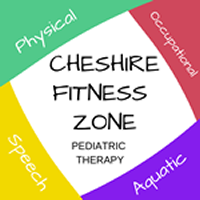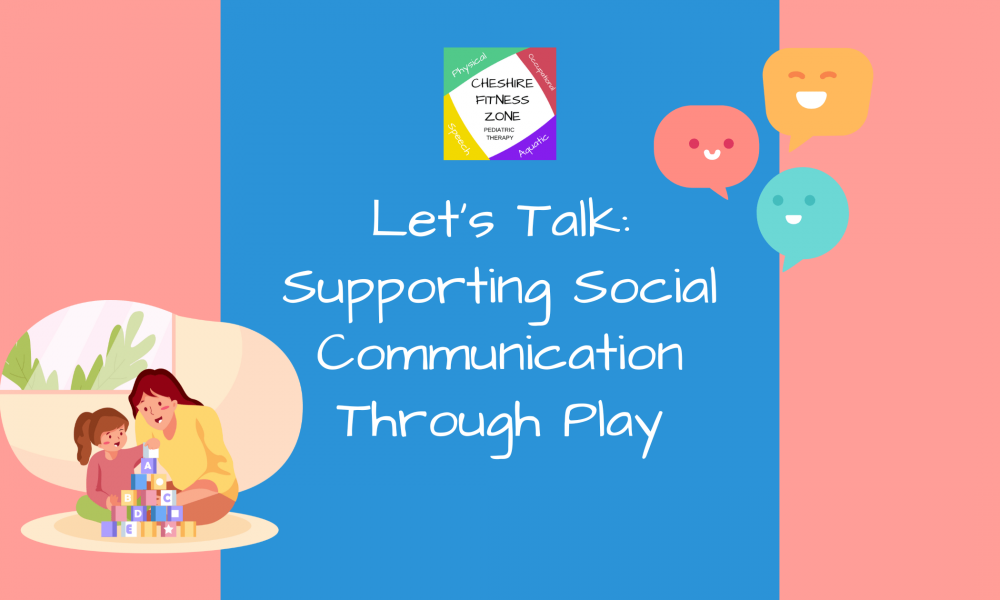Let’s Talk: Supporting Social Communication Through Play
May is Speech-Language-Hearing Month, a national initiative dedicated to raising awareness about communication disorders and the vital role speech-language pathologists (SLPs) play in supporting individuals across the lifespan. For children, especially, communication goes far beyond the articulation of sounds, it’s about building connections, understanding others, and expressing needs and ideas effectively.
This month is an opportunity to focus on one of the most powerful tools for developing communication skills in young children, play!
What Is Social Communication?
Social communication, also known as pragmatic language, involves the use of language in social contexts. It includes:
- Initiating and sustaining conversations
- Understanding and using verbal and non-verbal cues (eye contact, gestures, facial expressions)
- Taking conversational turns and staying on topic
- Modifying language based on the listener or setting
These skills may not develop intuitively. That’s where early intervention and therapeutic strategies come into play, especially those rooted in interactive, child-centered approaches.
Why Play Matters in Communication Development
Play is a natural, developmentally appropriate way for children to practice and internalize communication skills. It provides real-time opportunities to:
- Engage in reciprocal interactions
- Interpret social cues in context
- Express thoughts, preferences, and emotions
- Collaborate, negotiate, and problem-solve
Through both structured and unstructured play, children explore the building blocks of communication while engaging in meaningful experiences. In speech therapy, SLPs often harness the motivational power of play to target goals within a dynamic and responsive environment.
Play Activities for Home Practice
Pretend Play with Stuffed Animals, Dolls, and Action Figures
Create a simple play scenario, like a birthday party, a doctor visit, or a trip to the zoo. Assign roles and use characters to carry out the storyline.
Modeling Tips for Caregivers:
Use narration: “The bear is waiting for his turn at the doctor’s office.”
Introduce emotional vocabulary: “The puppy is nervous. He doesn’t like shots.”
Ask open-ended questions: “What do you think will happen next?”
Provide language models: “Hi! I came to get a check-up today.”
This supports expressive language, emotional literacy, sequencing, and perspective-taking, all foundational aspects of social communication.
Turn-Taking and Cooperative Games
Use simple games like Go Fish, memory cards, or rolling a ball back and forth. The activity should require turn-taking and reciprocal interaction.
Modeling Tips for Caregivers:
Emphasize the structure: “Your turn… now it’s mine.”
Use polite language: “Can I go next, please?” or “Thank you for waiting.”
Encourage commenting and encouragement: “Nice try!” or “You got it!”
These interactions build the back-and-forth rhythm of conversation, patience, and social flexibility, skills that generalize to peer interactions.
Supporting Communication with AAC Users
Children who use AAC (Augmentative and Alternative Communication) benefit from the same everyday interactions, just with a few extra considerations. Model language by pointing to symbols or words on their device as you speak (this is called “aided language input”), and keep AAC available during all parts of the day, mealtime, playtime, and beyond.
Offer choices, follow their lead, and allow plenty of time for them to respond in their own way. The more they see AAC being used naturally, the more comfortable and confident they become in using it to express themselves. Every interaction is a chance to connect and grow communication skills!
How Speech Therapy Supports Social Communication
Speech-language pathologists tailor interventions to a child’s unique profile.
For social communication goals, therapy may include:
- Peer modeling and guided interaction
- Role-playing and scripted scenarios
- Visual supports and social stories
- Play-based interventions with targeted feedback
Promote Communication Today!
Strong communication skills are not just about vocabulary or grammar, they’re about connection, confidence, and community. Social communication development begins in the early years and thrives in rich, responsive environments where children are encouraged to explore language through play.
This National Speech-Language-Hearing Month, we encourage families to embrace the power of everyday interactions. Whether through pretend adventures or board game, each playful moment is an opportunity to nurture your child’s communication.
If you have questions about your child’s speech or social communication development, don’t hesitate to reach out to a licensed speech-language pathologist. Early support can make a lasting difference.



